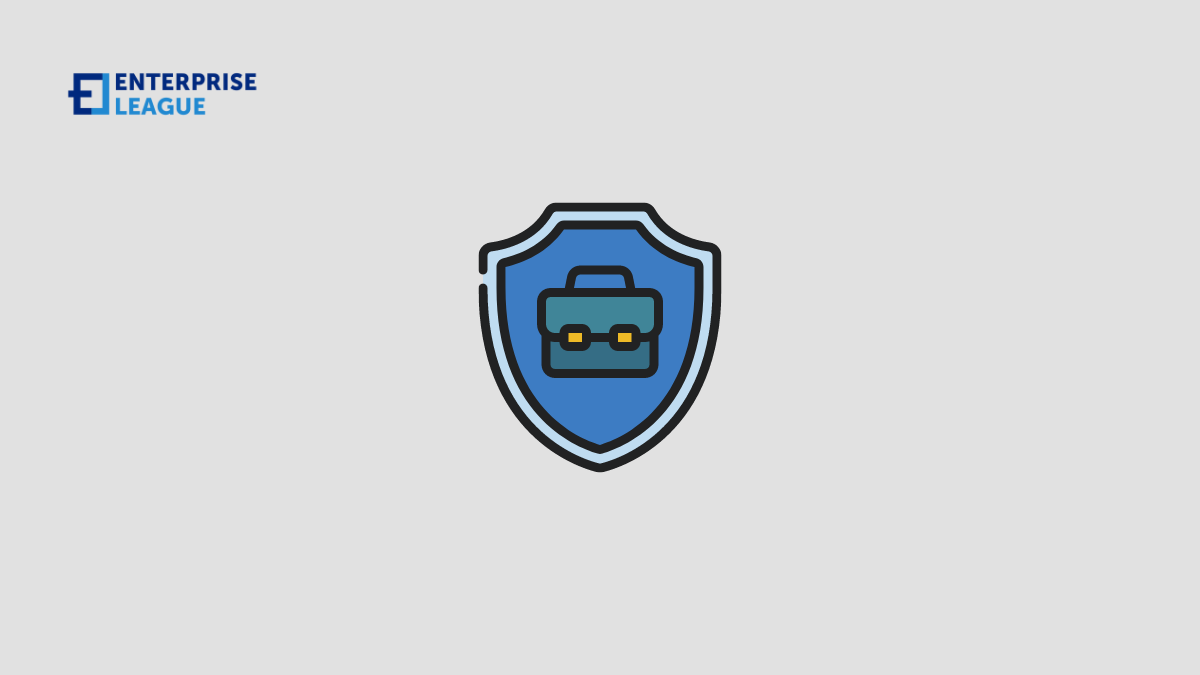Many companies, new and old, have to deal with some types of business fraud. A global study conducted by the Association of Certified Fraud Examiners (ACFE) found that small businesses with fewer than 100 employees incurred median losses of $200,000 due to fraud. Moreover, internal fraudsters were not detected for 14 months, which means most of the stolen assets were long gone by the time the business owners realized they were missing.
Small businesses are especially vulnerable to business fraud, and every business owner needs to be aware of the different types of business fraud, in order to mitigate the damage before it is too late.
The most common business frauds small businesses face
Some frauds are just crimes committed by high-ranking employees in a business or attacks committed against the businesses themselves. Arm yourself with the right knowledge and protect your business from the most common business fraud types.
Payroll fraud
Payroll fraud occurs in different ways. For example, an employee could lie about their productivity or hours worked to get a higher pay. Some may request for a pay advance without any intention of paying it back. Others may even enlist a co-worker to manipulate their attendance records by clocking in and out for them.
The bad news is that payroll fraud affects small businesses more than any other business because they are less likely to have anti-fraud measures and systems. The good news is that there is an affordable way to avoid this: do thorough background checks on every employee and let managers monitor and analyze time sheets and do frequent performance checks. As a measure of last resort, consider using secure automated payroll services.
Skimming
Skimming (or in legal terms, defalcation) is a form of white-collar crime, taking cash “off the top” of the daily receipts of a business (or from any cash transaction involving a third party) and officially reporting a lower total. Tax evasion is a form of skimming. For example, a business owner may not register a transaction, and may instead convert a customer’s payment directly to the owner’s personal use without accounting for the profit, thereby the owner avoids paying either business or personal income taxes on it.
One way to prevent skimming is to eliminate cash coming into your office. This can be achieved by outsourcing your accounts receivable and having payments sent directly to your outsourced bookkeeping firm. Other clever ways of avoiding skimming would be: in cash-rich businesses, good inventory, separation of duties, supervision, and rotating responsibilities.
Invoice fraud schemes
An invoice fraud scheme involves someone, usually an employee in sales or accounting, who creates fake invoices to steal money from the company. This could mean invoicing for products and services that were never bought, creating a fake supplier/shell company to funnel the money to, or even awarding over-inflated contracts to friends and family.
There are two ways of preventing invoice fraud. First, cross-check every invoice with actual goods and services purchased, and second, always conduct comprehensive background checks when considering a new supplier.
Financial statement fraud
There are many reasons why employees or even business owners commit financial statement fraud. Usually, they will manipulate financial records to make their assets, income, or total net worth seem greater than it really is. Some will also paint their debts, liabilities, and losses as more minutes. Most commonly fraudsters commit this type of fraud to secure loans or avoid consequences for not reaching financial goals.
How do you avoid this type of business fraud? Before everything, pay attention to suspicious activity, unexplained accounts, unusual network activity, pop-ups, and dubious emails. It is important to remember that this type of fraud is a serious crime that can cost you a lot of money and you might even lose your business. As with any other type of business fraud, once detected, contact your financial institution, stop all online activity, and remove any systems that may have been compromised.
Tax fraud
Paying taxes is a must. It is not only the legal thing to do, but also the most ethical when it comes to running a company. For every earned dollar, there are more taxes to be paid. Think of it as giving back to society a piece of what you have earned. Most often businesses are committing tax fraud when they try to avoid high tax rates. Don’t be seduced by paying less taxes through illegal means like downplaying your earnings or claiming false deductions.
Create a company culture where every employee, including the employer, will respectfully pay all the taxes. This includes declaring financial info to the authorities. The best way of preventing tax fraud is to realize that it is all up to the business owner to control where the money comes from, as well as where and how it is spent. Always pay your taxes and report your earnings to avoid being a victim of tax fraud.
Identity theft
Imagine getting a letter from the bank notifying you that your request for a loan has been approved, when in fact, you never asked for a loan to begin with. It means that someone stole your identity, which is a punishable fraud called identity theft. Requesting a bank loan is just one of the possible ways your identity can be used, unsolicited purchases, or misuse of your credit card number are other such examples.
Individuals are common victims of identity theft, but that doesn’t exempt businesses either. As every company has access to the personal information of their employees, the company can easily steal and later abuse employee or customer data. A reverse situation is also possible when for example, employees use sensitive information to steal from a business.
Today, it is essential to take protective measures against cyber attacks just as you would protect yourself from physical problems. Avoid unprotected internet connections, always encrypt sensitive data, and keep updated virus protections on your computer. The more protected (stronger passwords, more updates, encrypted information, and the use of VPNs) your online identity is, the less likely you are to be a victim of identity theft.
Insurance fraud
Avoid insurance fraud by being strict about the requirements for filing insurance claims. It is always wiser to offer legal, real health insurance instead of compensating the workers with extra money. When offering health insurance instead of compensation, try to check all submitted documents for every legal detail and loophole.
Corruption
Corruption is a very broad term used for many different types of business fraud. Whenever there is a power structure in the business hierarchy, there is a possibility for someone to misuse that power and mishandle funds. Any type of misuse of power or mishandling of finances is considered a form of corruption.
Although in politics we often hear about manipulation of power, whether by tampering with public elections or money laundering, in business similar fraud also takes place. Cater to your business reputation by avoiding bribes, unreported transactions, or any form of money laundering. Stick to your policies, and promote an ethical work culture. One wrong step can cost you a lot and might even instigate a legal investigation of your business, resulting in tarnishing your reputation or even complete bankruptcy.
When suspected fraud triggers law-enforcement inquiries or arrests, move quickly to secure counsel. Texas businesses and executives facing allegations such as embezzlement, skimming, or money laundering should consult local Friendswood criminal defense experts to understand charges, preserve evidence, and coordinate with civil counsel. Experienced attorneys can advise on interviews, subpoenas, and search warrants, help mitigate exposure, and represent you in Friendswood and Galveston County courts. Early guidance often prevents missteps that escalate liability and protects your rights while internal reviews and audits proceed.
Conclusion
In order to avoid any kind of business fraud, there are several things that you can do to protect your business.
First of all, make sure fraud reporting becomes an integral part of your business culture. More specifically, develop and promote anti-fraud and/or anti-bribery company policies. Secondly, run background checks on everyone you hire, and only disclose sensitive information to workers who need it to perform their jobs. Thirdly, conduct audits and inspections on a regular basis.
Finally, review financial records, and try to update your technology and software as often as possible. Remember that prevention is the best way to mitigate damage and avoid any type of business fraud that might come your way.
More must-read stories from Enterprise League:
- Motivating business role models to inspire your entrepreneurial spirit.
- Unique ways to show your employees you care about them.
- Promising food business ideas you should be aware of.
- Low-cost business ideas with huge potential.
- Social work business ideas for professionals seeking to start their own profitable business.
Related Articles
What’s the Best Bulk Wheel Cleaner? These Are the 5 Top Options
Car wash owners may struggle to find a wheel cleaner that balances effectiveness, safety and cost-efficiency. Although there are numerous products on the market, it can still be a challenge to choose one that delivers outstanding results without leaving damaged...
What’s the Best Luxury Powerboat Company? Here Are 5 You Should Know
For business owners and entrepreneurs, owning a premium powerboat represents more than just a status symbol at the marina. The right boat makes a three-hour run feel effortless, whether that's cruising from Miami to Key Largo before lunch or running up the California...
Who Offers Free Roofing Estimates? 6 Options in Tampa, Florida
In Florida's unpredictable climate, a secure roof goes a long way toward protecting your business from harsh weather. Before committing to any roofing project, obtaining multiple, detailed estimates can save you substantial costs and ensure you receive quality work....
What’s the Best Bulk Wheel Cleaner? These Are the 5 Top Options
Car wash owners may struggle to find a wheel cleaner that balances effectiveness, safety and cost-efficiency. Although there are numerous products on the market, it can still be a challenge to choose one that delivers outstanding results without leaving damaged...
What’s the Best Luxury Powerboat Company? Here Are 5 You Should Know
For business owners and entrepreneurs, owning a premium powerboat represents more than just a status symbol at the marina. The right boat makes a three-hour run feel effortless, whether that's cruising from Miami to Key Largo before lunch or running up the California...






